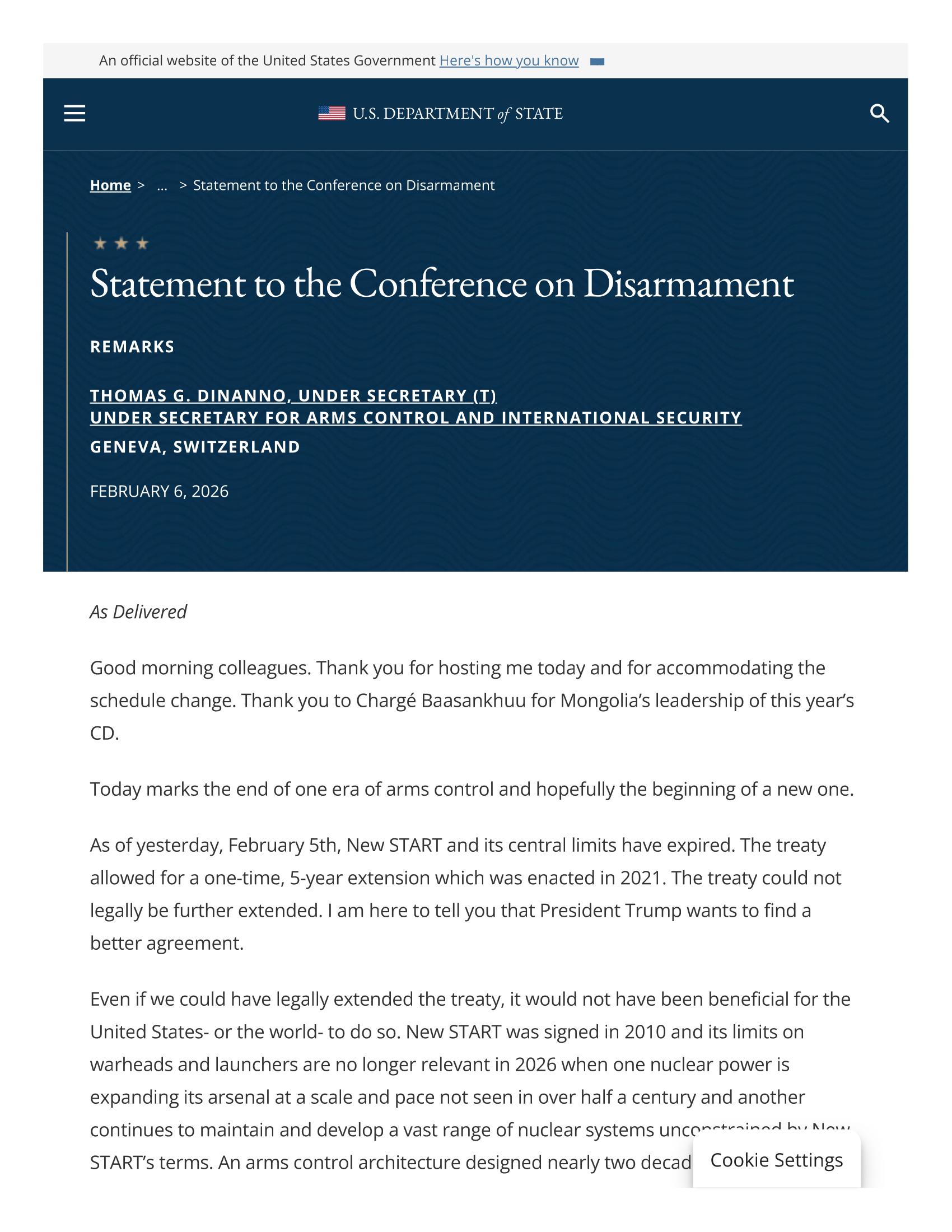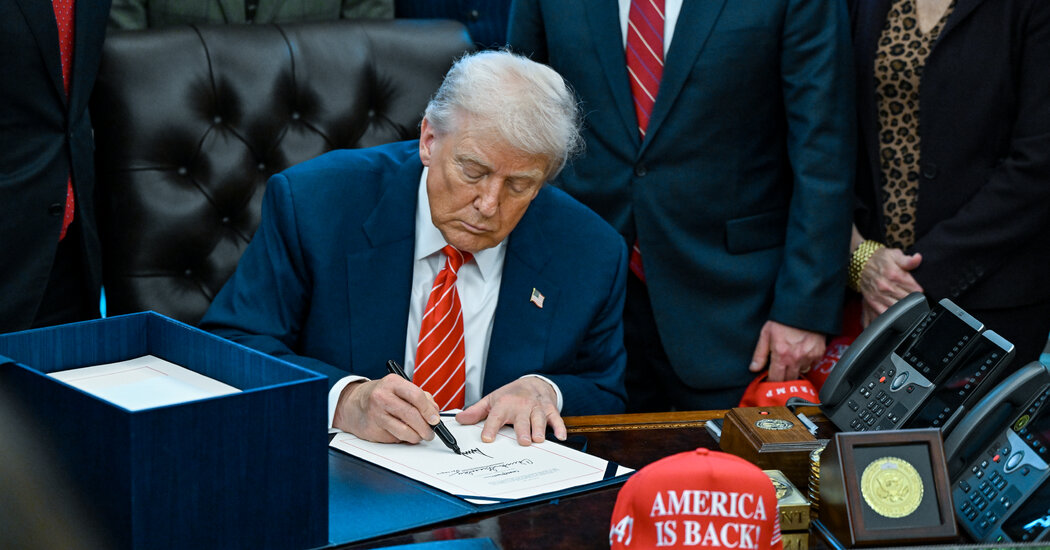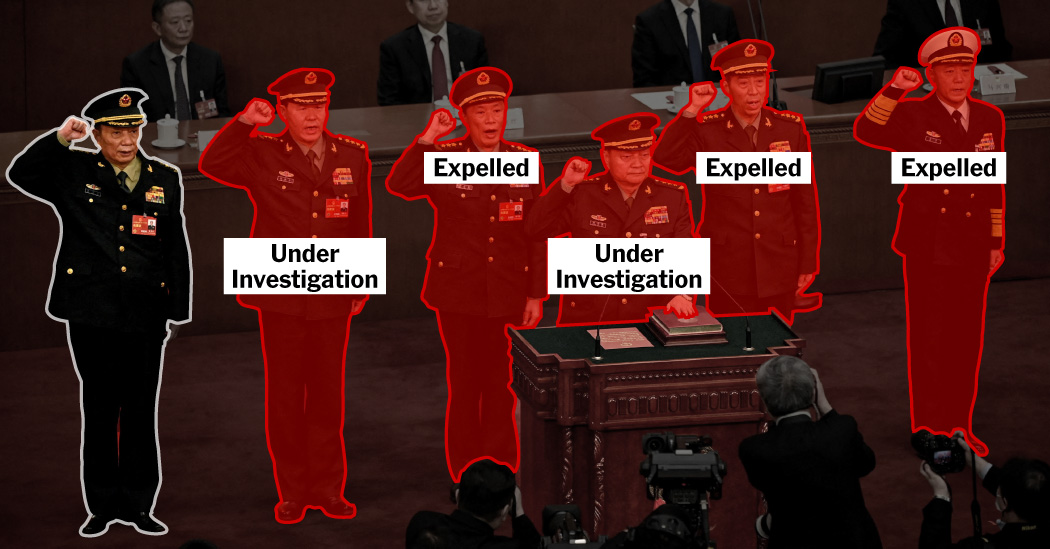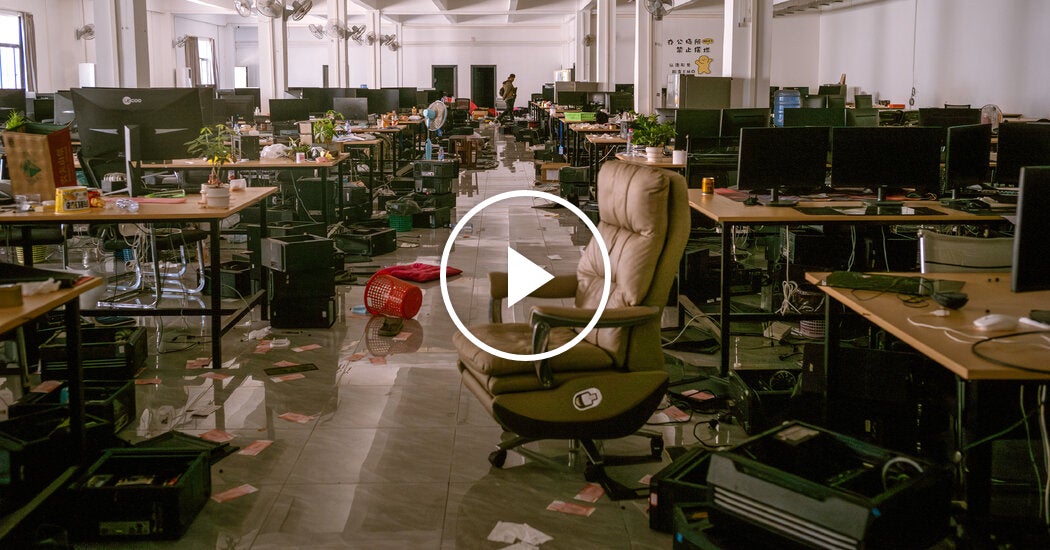Shake intensity Note: Map shows the area with a shake intensity of 4 or greater, which U.S.G.S. defines as “light,” though the earthquake may be felt outside the areas shown. All times on the map are Eastern. The New York Times A major, 7.1-magnitude earthquake struck in the South China Sea on Sunday, according to the United States Geological Survey. The temblor happened at 11:57 a.m. Eastern about 34 miles northwest of Kota Belud, Malaysia, data from the agency shows. As seismologists review available data, they may revise the earthquake’s…
Category: NYT
Oksana Baiul, Nancy Kerrigan, Lu Chen Revisit Iconic Photo From 1994 Winter Olympics
Interviews by Charley LockeFeb. 18, 2026 NYT
What a Speech Reveals About Trump’s Plans for Nuclear Weapons
Within hours of the expiration last week of thefinal arms control treaty between Moscow and Washington, the State Department sent its top arms diplomat, Thomas G. DiNanno, to Geneva to lay out Washington’s vision for the future. His public address envisioned a future filled with waves of nuclear arms buildups and test detonations. The views of President Trump’s administration articulated in Mr. DiNanno’s speech represent a stark break with decades of federal policy. In particular, deep in the speech, he describes a U.S. rationale for going its own way on…
Deep in China’s Mountains, a Nuclear Revival Takes Shape
Babies, Robots and Climate Change
One statistic that stopped me recently is that China’s population is projected by some experts to halve by the end of the century. Halve! China was the most populous country in the world until only three years ago. Birthrates in Italy, Germany and Japan have been low for as long as I can remember. They’re now falling across the world. So what does it mean for humanity when humanity is shrinking? Will it solve climate change by reducing the human footprint? Reduce the disruption of artificial intelligence taking human jobs?…
China’s Disappearing Generals
NYT
Secret Filming of Women Thrives in China as Officials Silence Activists
An Underground Industry in Plain Sight Little EnforcementSilencing Those Who Speak Up
Thousands of Chinese Fishing Boats Quietly Form Vast Sea Barriers
A Times Reporter Goes Inside a Cyberscam Center in a War Zone
Holy moly. Look at these phones. The floor is just littered with SIM cards. We’re in Myanmar. Only weeks after rebel fighters took control of a cyberscam center near the border with Thailand. For years, Chinese criminals have used ordinary office spaces like this in the middle of the jungle to target Americans in elaborate online fraud. OK, here we are, the nerve center of this multibillion-dollar industry that is scamming people all across the world. More than 3,000 people from dozens of countries were once employed here, joining an…








